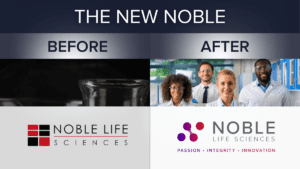
Bio-Trac and ATCC Partner to Lead Workshop on Best Practices in Mammalian Cell Culture
By Alex Keown
January 24, 2023
Bio-Trac and ATCC will partner in February to conduct a “Best Practices in Mammalian Cell Culture” workshop at the MC Bioscience Education Center in Germantown to offer a comprehensive overview of best principles and techniques related to cell culture technique.
Cell cultures are undoubtedly a core backbone of the life sciences industry. They are essential in everything from basic research to preclinical testing to even becoming a therapeutic themselves, as we’ve seen with the rise of cell therapies.
For being so crucial, though, many scientists take the technique for granted. Culture contamination (cross contamination, mycoplasma detection, sterility, biological and chemical contaminants) is a common concern in laboratories and can lead to serious consequences beyond just a paper retraction, going so far as to potentially jeopardize years worth of work and progress and invalidating scientific data. Proper lab techniques, careful diligence and best practices can mitigate contamination concerns, which will be one of the core focuses of the three-day workshop.
Despite the widespread use of cell culture, most universities do not teach this essential skill, and many scientists lack knowledge of best practices. “You’re only as good as the person who trained you,” Mark Nardone, cofounder and director of Bio-Trac, explained in an interview with BioBuzz.
Nardone said proper cell culture aseptic technique is as much of an art as it is following a lab protocol. Improper techniques in the lab are often passed along (unintentionally) by mentors who themselves were subject to improper training. It can be something as minor as the proper BSC preparation or how you open, hold and close a flask to more significant issues – failing to authenticate your cell line or test for mycoplasma contamination. By combining forces, Bio-Trac and ATCC aim to provide participants with proper techniques, tools, and practices for maintaining high quality and robust cell cultures.
Bio-Trac was founded in 1985 by Nardone and his father, Dr. Roland M. Nardone, (Professor of Biology, Director of the Center for Advanced Training in Cell and Molecular Biology at Catholic University of America), an expert in the field of Tissue Culture. “I remember early on, working in Dr. Nardone’s lab, being taught aseptic technique – he was tough. I had to subculture my cells on a lab bench (Bunsen burner, no hood, no antibiotics) and maintain the cultures over a period of time, demonstrating ability to maintain sterility and not introduce contamination – before I could work in a hood,” said Mark Nardone. Under the mantra of “practice makes perfect,” Nardone would repeatedly conduct these drills to ensure proper handling of cultures.
That same kind of precision will be emphasized during the best practices workshop in February. Some of the topics that will be discussed during the workshop include an introduction to cell culture and aseptic technique, cell line authentication, principles and considerations for setting up a tissue culture lab, best practices in cryopreservation of mammalian cells and more.
Beyond the overview of mammalian cell culture, the workshop will also explore primary cell culture, stem cell culture, organoids and 3D cultures, cell line authentication and cellular reprogramming. And beyond the instruction itself, workshop participants will receive practical, hands-on laboratory training exercises related to cell culture. They will learn proper thawing, expansion, cryopreservation and authentication techniques.
The majority of workshop instruction will be conducted by representatives of Virginia-based ATCC, one of the world’s premier biological materials management and standards organizations. ATCC is no stranger to conducting these kinds of mammalian cell culture workshops. The organization used to regularly provide instruction in these practices, but those declined over the past several years. When floating the idea of resurrecting these workshops, Nardone said he couldn’t think of a better partner than ATCC.
“We really want to stress the importance of proper technique when it comes to cell cultures,” Nardone said.
The workshop will be held Feb. 8-10 from 9 am to 5 pm at the Montgomery College Bioscience Education Center (BEC) in Germantown, MD. The program is limited to 18 participants. A registration fee of $995 is required. Special hotel rates at the Holiday Inn Express are available for those who attend the workshop.
Mask requirements are currently in place in the BEC as well as social distancing measures. Proof of Covid-19 vaccination is required.
The BEC, located on the Montgomery College Germantown, MD Campus, is a 125,000 sq/ft training facility containing 25 wet labs, smart classrooms as well as state-of-the-art lab equipment currently found in area biotech and biopharma companies. Home of the MC Biotech program, the BEC provides scientific training at all levels, from early college students to MD/PhD research scientists.
The MC Biotech Program also offers a 15-week lecture and hands-on Cell Culture and Aseptic Technique class in Germantown, MD.








